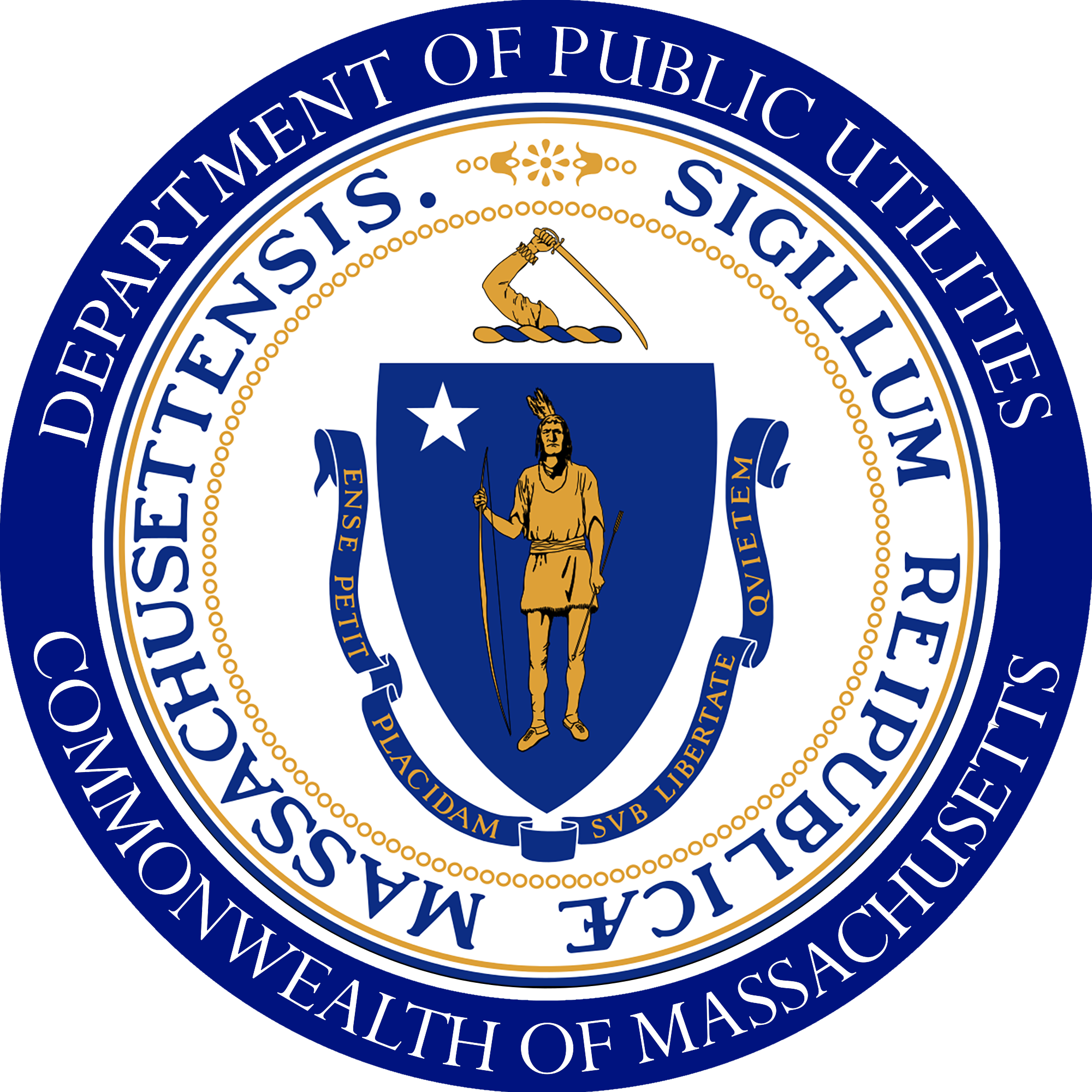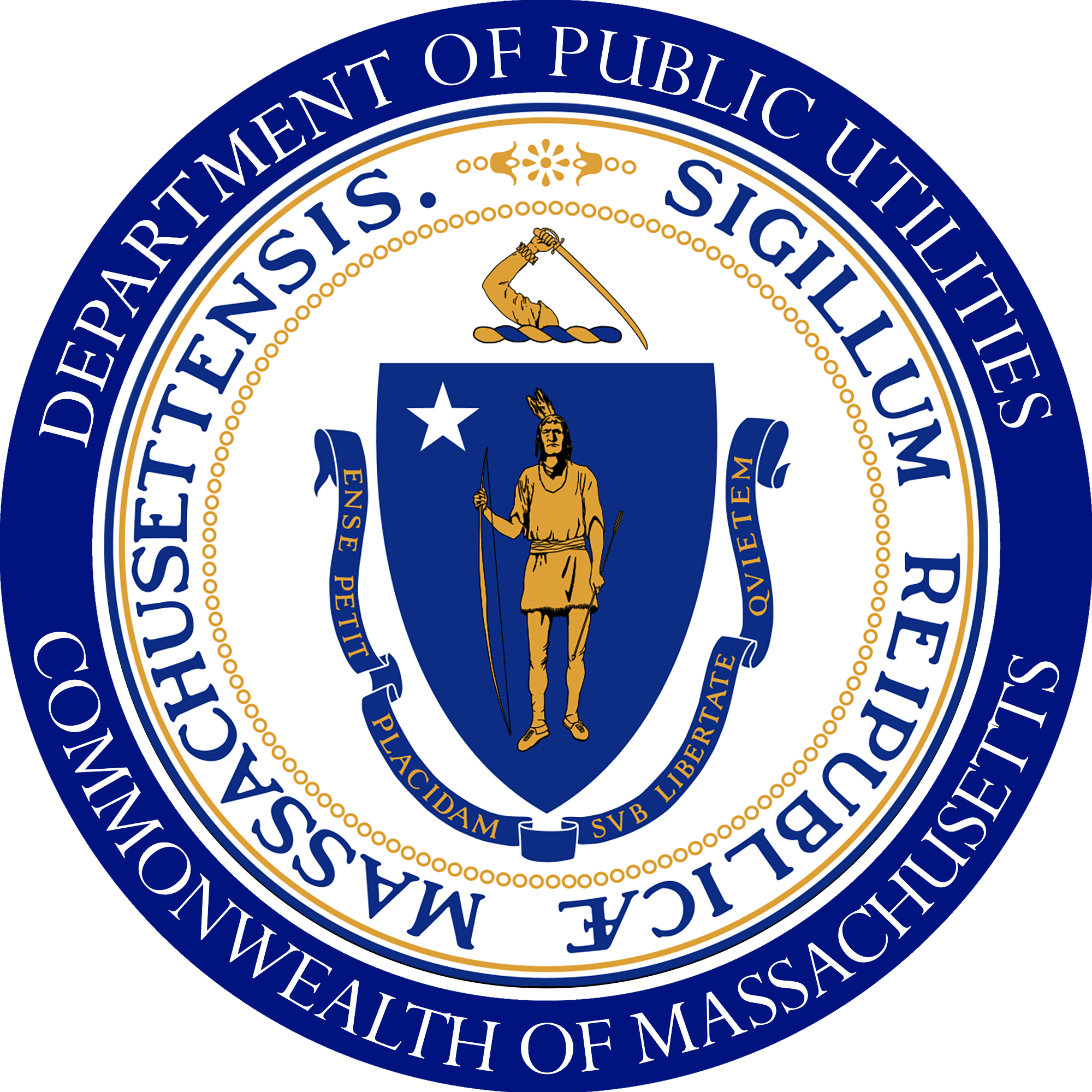- Department of Public Utilities
- Electric Power Division
Media Contact
Alanna Kelly, Communications Director
BOSTON — The Massachusetts Department of Public Utilities (DPU) issued an order today adopting uniform guidelines to approve future municipal aggregation plans. The order comes less than a year after the DPU opened its investigation to establish new guidelines for plans and to streamline the application process.
Throughout this proceeding, the DPU was able to remove a backlog of pending applications and allow more cities and towns across Massachusetts to provide their residents with flexibility when choosing an electricity provider. The DPU issued a total of nine orders approving 22 municipalities' plans while simultaneously crafting the new guidelines. To date, the Department has approved a total of 199 municipal aggregation plans for municipalities across the state.
“With these new guidelines, more Massachusetts cities and towns can move forward expeditiously to provide clean energy at competitive prices,” said Chair James Van Nostrand. “The approval of the new guidelines demonstrates the collaborative effort undertaken to pave the way for innovation and accelerating the path towards greater emissions reductions in Massachusetts.”
“The new guidelines provide more discretion to municipalities and implements increased transparency to ensure ratepayers are fully protected,” said Commissioner Cecile Fraser. “This reset of the approval process creates reasonable boundaries while unlocking more benefits for municipalities and customers of their programs.”
“Municipalities have expertise in communicating with their residents and businesses and are best positioned to ensure meaningful communication with environmental justice populations and limited English proficient speakers,” said Commissioner Staci Rubin. “The new guidelines recognize that expertise and defer to municipalities about how to share information about electric supply options and the associated benefits of the aggregation program.”
These new guidelines come after multiple technical sessions and working group meetings where stakeholder feedback was taken into consideration in revising the guidelines, making it easier for municipalities and their consultants to petition the Department for approval of the Municipal Aggregation Programs.
The DPU’s new guidelines provide municipalities with flexibility in the development and operation of their plans along with enhanced access to useful information for prospective customers.
Under the new guidelines, municipalities must:
Review the proposed plan with the Department of Energy Resources (DOER) and consider DOER’s Best Practices before submitting the plan for public review
Notify the operating electric distribution companies that the municipality now has a Municipal Aggregation Program
Prominently display on the municipality’s website a link to the plan with relevant information for the public to easily access
Indicate the steps the municipality will take to procure power from a licensed energy broker for its program and include requests for proposals, selections, and executed contracts to provide transparency for customers
Specify eligibility for all electric customers residing or operating a business in the given municipality
Describe all proposed conditions or restrictions on program participation
Provide steps to prevent any service disruption and ensure a continuous supply of power
Identify the core functions of the program and the entity or entities that will conduct these functions
Clearly list the components that make up the rates charged to customers including supply and renewable energy content, consultant and municipality services, and any other service fees related to the municipality's aggregation program
Allow customers to opt out of the program at any time without penalty
Provide the public with access to ongoing information about the program in annual reports that include product rates, the amount of renewable energy provided through the program and subsequent renewable energy certificates, equitable treatment of customers, the steps taken to ensure public access to program information, and any additional funding sources or costs to program customers information
Choose the method of communication to potential participants to effectively deliver information about the program
Previously, when modifying its plan, a municipality had to submit an amended plan to the DPU for approval. Now, a municipality can modify its plan after a 30-day public review and submit the revised plan to DPU purely for informational purposes. This significant improvement allows for municipalities to quickly respond to changes in the energy market to optimize both the benefits to customers and their contributions to the state’s clean energy goals.
Municipalities that received the DPU’s approval of their plans prior to this order do not need to resubmit their plans based on the new guidelines but must ensure that their aggregation programs comply with the new standards for customer notifications, access to ongoing information about the program, and that they utilize the new framework for their annual reports.
The new guidelines include a guidance document from DOER regarding Best Practices for Advancing Clean Energy in Municipal Aggregation Plans. This guidance outlines DOER’s recommendations for ways that municipalities can support clean energy through their aggregation, including through the financing of new, local renewable energy projects, funding a staff Energy Manager for the municipality to manage the aggregation, or purchasing Massachusetts-certified Renewable Energy Certificates (RECs) to increase the share of clean energy in the aggregation’s electricity supply. In addition to the Best Practices included as an attachment to the new DPU guidelines, DOER will also be issuing a final version of its Municipal Aggregation Manual by the end of August. This manual, which DOER published in draft form for public comment in 2022, provides additional background information and guidance for municipalities interested in pursuing aggregation.
The Department plans to review the new municipal aggregation applications and filings for low-income community shared solar through approved municipal aggregation programs.
Background on Municipal Aggregation
Municipal aggregation was first established in 1997 following the passage of the Electric Industry Restructuring Act. Municipal aggregation, also known as community choice aggregation, allows a municipality to solicit bids for and purchase electricity supply on behalf of its residents and businesses. Massachusetts state law requires municipalities to submit municipal aggregation plans to the DPU for review and approval.
There are 199 approved municipal aggregation plans since the approval of the first plan in August 2000 for 21 municipalities operating under the energy services organization Cape Light Compact. As of January 2024, there are over 1.27 million customers enrolled in a municipal aggregation program in Massachusetts.
Stakeholder Statements
Commissioner Elizabeth Mahony, Department of Energy Resources
"We are pleased to see these new guidelines from the DPU, and that DOER’s best practices on how communities can increase the amount of renewable energy in their electricity supply is included. DOER will publish its Municipal Aggregation Manual for cities and towns later this summer. We appreciate the progress made today and look forward to future collaborations with municipalities and the DPU."
Attorney General Andrea Campbell
"The municipal aggregation process enables cities and towns to advance our clean energy and climate goals in ways that keep consumer costs fair and stable. I applaud the Department of Public Utilities for issuing this new guidance, which will help protect consumers and streamline the regulatory approval process."
State Representative Jeffrey N. Roy (D-Franklin), House Chair of the Joint Committee on Telecommunications, Utilities and Energy
"These new guidelines will empower municipalities to procure cleaner energy options at competitive prices for their residents. Reforming the Commonwealth's municipal aggregation process was a priority in the Legislature this session. The DPU's thoughtful and collaborative engagement with stakeholders over the past few months has resulted in updated guidelines that will allow for greater flexibility and innovation, supporting both ratepayers and the Commonwealth's clean energy transition."
Ann Berwick, Co-Director of Sustainability, City of Newton
"The DPU deserves congratulations for this order. As former chair of the DPU and now a municipal official in Newton, I am well aware of the need to expedite cities’ and towns’ municipal aggregation plans. This order does that and, in so doing, makes it possible for more of the Commonwealth’s electricity customers to benefit from stable rates and more options to support renewable resources like solar and wind."
Larry Chretien, Executive Director, Green Energy Consumers Alliance
"Green Energy Consumers Alliance has been an advocate aggregation because it delivers both savings to ratepayers and more renewable energy than required by law. We are grateful that this DPU took the time to listen to stakeholders and to create guidelines that help the aggregation movement grow while continue to ensure consumer protections."
Paul Gromer, Chief Executive Officer, Peregrine Energy Group/MassPowerChoice
"The DPU should be commended both for the substance of the new Guidelines and for the process used to develop them. The DPU listened to stakeholders with open ears and an open mind. The process was a model of effective state and municipal collaboration."
Patrick Roche, Director of Innovation, Good Energy
"Good Energy commends the Department for its collaborative approach with this stakeholder process and for aligning the Guidelines with the goals stated by our cities and towns. The Guidelines will empower municipal governments to launch and adapt their aggregation programs in a timely manner, which is vital to continue delivering benefits to their communities in the rapidly evolving energy landscape and to accelerate the growth of clean energy, consistent with the Commonwealth's climate goals."
###

